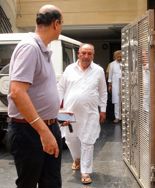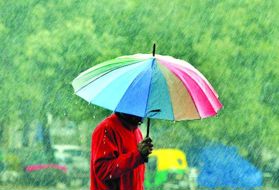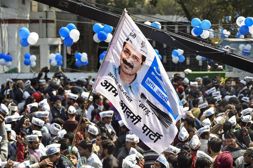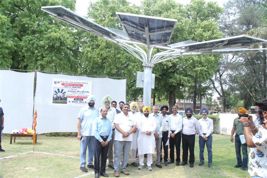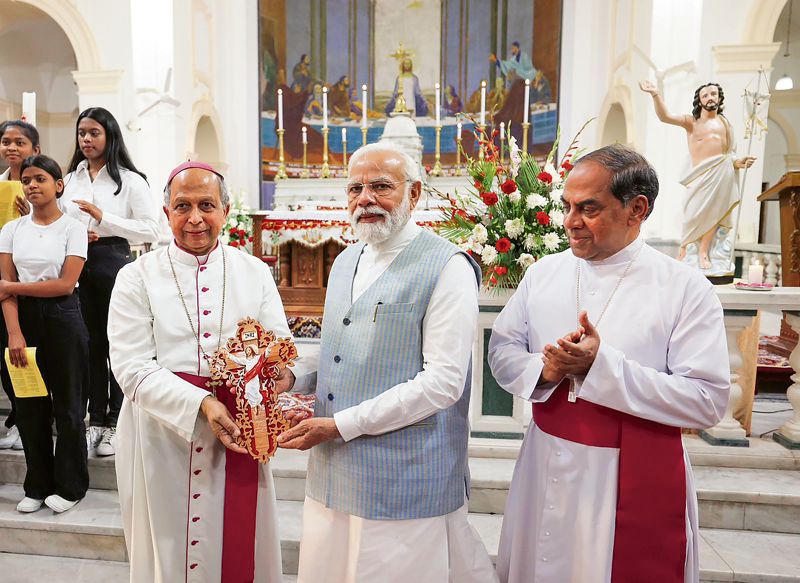
INITIATIVE: It may be likely that the Bharatiya Janata Party is acting in silos, according to the demographic patterns of a given state. PTI
THE BJP’s attempt to reach out to the country’s church leadership is immensely significant, yet intensely intriguing. Is it a tectonic shift in communal politics or a mere poll tactic to gain a few more Lok Sabha seats? The Jan Sangh and later the BJP — the two political avatars of the RSS — flourished over the last seven decades on the politics of polarisation. It peaked when the BJP did convince the electorate that the Congress and the Left liberals were practising minority appeasement as a means to grabbing power. So, all along the BJP has been pursuing a strategy that kept Muslims — and also Christians — at the centre of its politics of Hindu victimhood. The three core issues of Parivar politics — Ram Janmabhoomi, Article 370 and Uniform Civil Code — were all religious markers to accuse the Congress and the caste-based parties of minority appeasement.
The BJP’s actions to woo Christians can only be seen as a new direction in Sangh Parivar politics towards inclusion of Christians where they matter — the North East or Kerala.
This politics reached its apogee in Narendra Modi, who was hailed as the Hindu Hridaya Samrat long before pundits saw prime ministerial potential in him. In fact, it was his Hindutva credentials that propelled him to the political stratosphere, forcing a not-so-keen leadership to acquiesce to the demands of a worshipful cadre. And as Prime Minister, Modi refused to hold iftar receptions on Eid, turned Christmas into Good Governance Day and kept a very meaningful silence on attacks on the minorities, be they lynching of Muslims by cow vigilantes or vandalism of churches. These communal incidents, reported widely in the Indian and western media, have now begun to discredit and delegitimise Indian democracy. It is in this context the BJP leadership decided to change tack. Is it the victory of the Western opinion or a considered shift in the BJP strategy?
On Easter, PM Modi visited the Catholic cathedral in the heart of Lutyens’ Delhi (Edwin Lutyens had designed New Delhi with Anglican and Catholic cathedrals at the seat of power), lit a candle, heard hymns and warmly wished the clergy. Just four days later, President Droupadi Murmu met with an inter-denominational delegation of the church leadership: Catholic Archbishop Anil JT Couto, Anglican Bishop Paul Swarup, Methodist Bishop Subodh Mondal and two others. It wasn’t a casual visit, going by the press note issued by the Delhi NCR Christian Community, which seems to be an ecumenical platform.
Their press note says that the President of India expressed regret at her inability to protect the lives of Australian missionary Graham Staines and his two sons, who were burned to death by a Hindu mob in 1999 in Odisha’s Keonjhar district. The Vajpayee government, instead of contrition, sought a debate on conversion. In fact, Vajpayee had to press his colleague George Fernandes into service to douse the fire of international censure. The Staines’ murder remains an ugly, indelible blot on India’s claims of Hindu tolerance and constitutional morality. Then there were the 2008 anti-Christian riots in Kandhamal, another tribal district of Odisha, when the BJP was still a partner in the state’s ruling coalition. No Sangh Parivar leader had ever expressed remorse at his or her inability to protect the victims of a Hindu mob.
Sure, it was reported that sources in the Rashtrapati Bhavan have said that the President’s remarks were misconstrued by church leaders. But there is still no official statement disowning the press note. In the absence of an official denial, the remarks on Staines’ murder as reproduced by the church leaders suggest a change in the BJP’s worldview towards the minorities. The church leaders had also given a memorandum against the ‘steep increase’ in violence against Christians in the country, particularly in Uttar Pradesh and Chhattisgarh. Responding to this, most importantly, the President assured them that she would address complaints of ‘police and law enforcement complacency, unwarranted arrests, harassment of Christian families and attacks on institutions.’
This cannot be seen in isolation or in the context of Western opinion or India’s G20 presidency because it was preceded by a series of developments, starting with the PM attending a Baptist service listening to the famous Hallelujah Chorus during the swearing-in of the BJP’s alliance partner in Nagaland; the visits of BJP office-bearers to the residences of various church leaders and clergymen all over Kerala on Easter; the announcement of similar visits to Muslim families on Eid and the attempt to float a Christian political outfit in Kerala wooing a section of the Catholics; the defection of Congress veteran AK Antony’s son to the BJP; and, of course, the statement of the head of the most influential Kerala church that denied there was a sharp increase in attacks on Christians. It is a fact that the Cardinal who endorsed the BJP and many other Bishops are mired in corruption allegations, and that Christians may not vote for a church-sponsored candidate, as was evident in the last bypoll in a Christian-dominated Assembly segment in Kochi.
However, the BJP’s actions to woo Christians can only be seen as a new direction in Sangh Parivar politics towards inclusion and accommodation of Christians where they matter — the North East or Kerala. The BJP may be acting in silos, according to the demographic patterns of a given state. And that is where the President’s reported statement that she ‘believes that these violent attacks have been perpetrated by only a small handful of people’ becomes important. The President, taking a big leap, is officially distancing the government not just from violent Hindu mobs but also violence inherent in the grassroots activism against proselytisation. The President of India is above politics and can never be seen as a spokesperson for any party. Yet, her gesture ought to be appreciated if the BJP too follows in its deeds the President’s assurances.
It is a moment to hail democracy when people’s validation forces a party to shed politics of polarisation and hatred for the ‘other’. It cannot be dismissed as opportunism, for it is opportunism that always drives power politics.
Join Whatsapp Channel of The Tribune for latest updates.






















